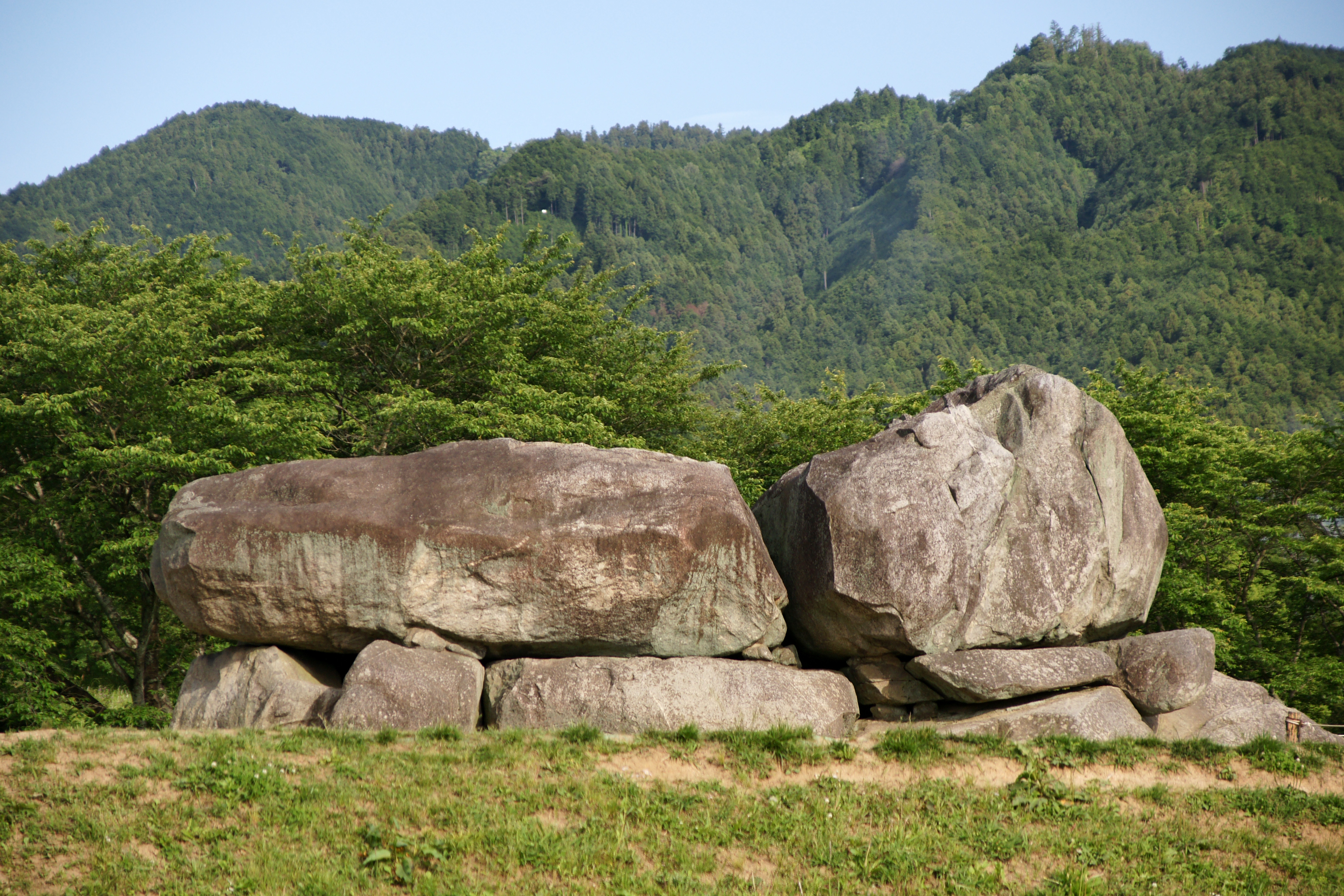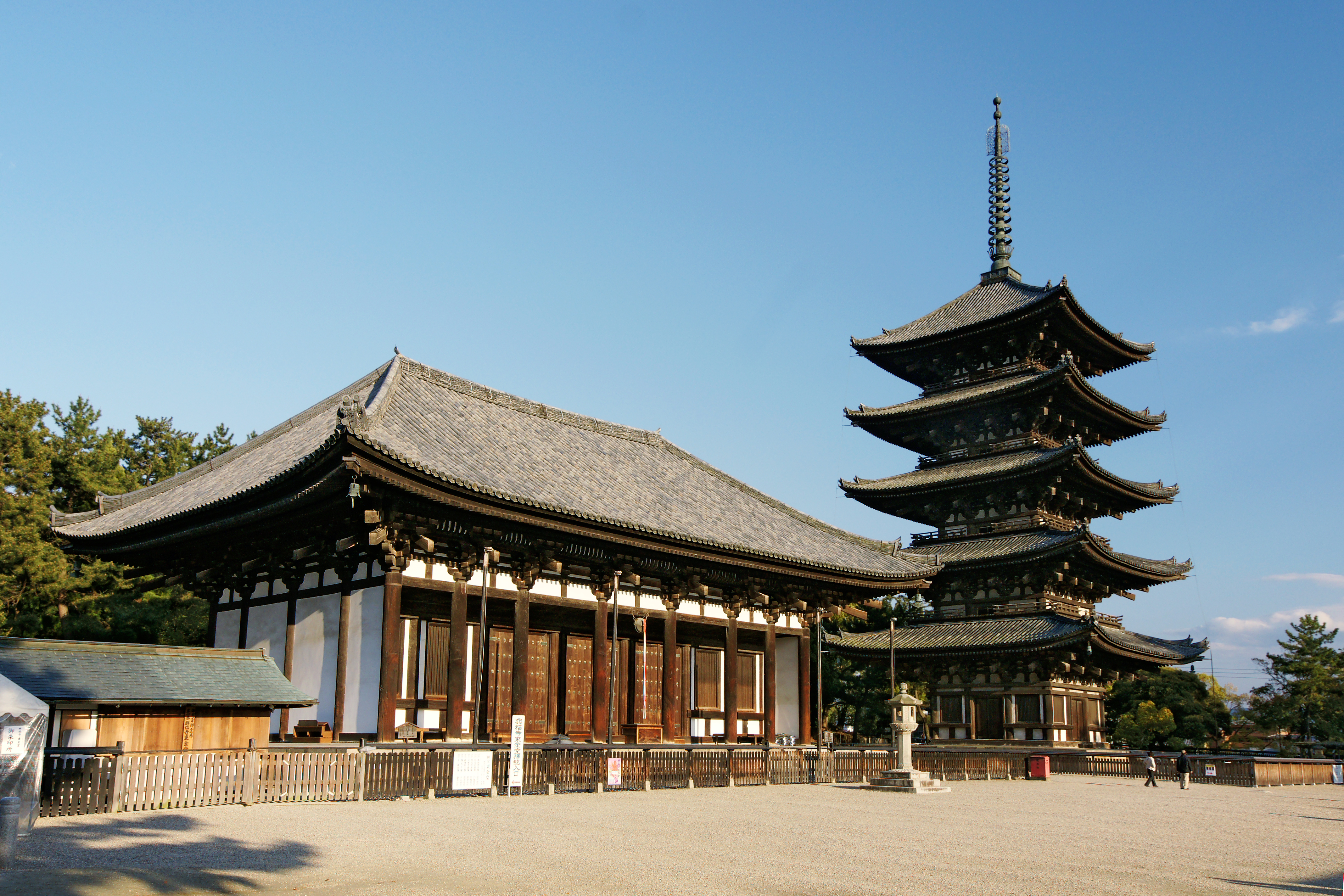|
Hanezu
''Hanezu'' ( ja, 朱花の月, Transliteration, translit. ''Hanezu no tsuki'') is 2011 Japanese drama film directed by Naomi Kawase, based on a novel by Masako Bando. The title is an ancient Japanese word for a shade of red, taken from the 8th century poetry collection Man'yōshū. The story is set in contemporary time in the Asuka, Nara, Asuka area and recalls the ancient history of the place. The film premiered In Competition at the 2011 Cannes Film Festival. Cast * Tohta Komizu as Takumi * Hako Oshima as Kayoko * Tetsuya Akikawa as Tetsuya * Akaji Maro as Yo-chan * Taiga Komizu as Hisao, Takumi's grandfather * Kirin Kiki as Takumi's mother * Norio Nishikawa as Takumi's father * Miyako Yamaguchi as Kayoko's mother Production The film was produced through Kumie in co-production with the Kashihara-Takaichi Regional Administrative Association. It was shot on 16 mm film on location in the Nara Prefecture, which is where director Naomi Kawase comes from and lives. The ac ... [...More Info...] [...Related Items...] OR: [Wikipedia] [Google] [Baidu] |
2011 Cannes Film Festival
The 64th Cannes Film Festival was held from 11 to 22 May 2011. American actor Robert De Niro served as the president of the jury for the main competition and French filmmaker Michel Gondry headed the jury for the short film competition. South Korean film director Bong Joon-ho was the head of the jury for the Caméra d'Or prize, which is awarded to the best first-time filmmaker. The American film ''The Tree of Life (film), The Tree of Life'', directed by Terrence Malick won the Palme d'Or. ''Midnight in Paris'', written and directed by Woody Allen, opened the festival and ''Beloved (2011 film), Beloved'' (''Les Bien-aimés''), directed by Christophe Honoré and screened as out of competition, closed the festival. Mélanie Laurent hosted the opening and closing ceremonies. Italian film director Bernardo Bertolucci was presented with the third Honorary Palme d'Or Award at the opening ceremony of the festival. Though the award had been given out sporadically in the past the Honorary ... [...More Info...] [...Related Items...] OR: [Wikipedia] [Google] [Baidu] |
Naomi Kawase
is a Japanese film director. She was also known as , with her former husband's surname. Many of her works have been documentaries, including ''Embracing'', about her search for the father who abandoned her as a child, and ''Katatsumori'', about the grandmother who raised her. Early life and education Growing up in the rural region of Nara, Japan, Kawase's parents split early on in her childhood, leaving her to be raised by her great-aunt, with whom she held a combative, yet loving, relationship.Karatsu 2009, p. 168. She originally attended the Osaka School of Photography (Ōsaka Shashin Senmon Gakkō; now Visual Arts College Osaka)to study television production, and later became interested in film, deciding to switch her focus. She was a student of Shunji Dodo at the college, and graduated in 1989.. Career After graduating, she spent an additional four years at the college as a lecturer before releasing ''Embracing''. Employing her interest in autobiography, most of her first ... [...More Info...] [...Related Items...] OR: [Wikipedia] [Google] [Baidu] |
Akaji Maro
is a Japanese actor, Butoka, and theater director. Early life In 1943, Maro was born in Sakurai, Nara, Japan. Career Maro's film career began in 1980. As an actor, Maro has over 42 film. In 1972 Maro is the founder of Dairakudakan Temputenshiki. Personal life Maro's sons are film director Tatsushi Ōmori, a film director, and Nao Ōmori, an actor. Filmography Film *''Inflatable Sex Doll of the Wastelands'' (1967) *''Ke no haeta kenjû'' (1968) as Taka *''Diary of a Shinjuku Thief'' (1969) *''Yami no naka no chimimoryo'' (1971) as Kinzo *''Kuroki Taro no ai to bôken'' (1977) *''Zigeunerweisen'' (1980) *''Kagero-za'' (1981) as Homeless *'' Burst City'' (1982) *''Yaju-deka'' (1982) as Painter *''Mitsugetsu'' (1984) *'' Shinran: Path to Purity'' (1987) as Nanzame *''Nijisseiki shônen dokuhon'' (1989) as Tattoo Master *'' Dotsuitarunen'' (1989) as Daisuke Kamoi *''Ware ni utsu yoi ari'' (1990) as Sakurada *''Yumeji'' (1991) *''Waga jinsei saiaku no toki'' (1993) as Lt ... [...More Info...] [...Related Items...] OR: [Wikipedia] [Google] [Baidu] |
Kirin Kiki
(15 January 1943 – 15 September 2018) was a Japanese actress for Japanese cinema and television. Biography Kiki was born on January 15, 1943, in Kanda, Tokyo. Her father was a master of the ''biwa'' lute and a former police officer. Her mother owned a cafe in Jinbōchō, Tokyo and a restaurant in Noge, Yokohama, the latter being Kiki's maternal parents' home. Her mother was seven years senior to her father and had a child from both her two previous marriages. After graduating from high school, she started her acting career in the early 1960s as a member of the Bungakuza theater troupe using the stage name Chiho Yūki (悠木千帆). She eventually gained fame for performing uniquely comedic and eccentric roles on such television shows as ''Jikan desu yo'' and ''Terauchi Kantarō ikka'' and in television commercials. She changed her name to "Kirin Kiki" when, after being asked on a television show to auction off something of hers, she ended up selling her first stage name, cla ... [...More Info...] [...Related Items...] OR: [Wikipedia] [Google] [Baidu] |
Masako Bando
Masako (written: , , or in hiragana) is a feminine Japanese given name. Notable people with the name include: * *, (1888–1940), 6th daughter of Emperor Meiji *, Japanese long-distance runner *Masako Ebisu (born 1945), Japanese voice actress *, Japanese linguist *, Japanese architect *, later known as the "Nun Shogun" *, Japanese speed skater *, Japanese voice actress *Masako Ishida (born 1980), Japanese cross-country skier * Masako Jō (born 1978), Japanese voice actor *Masako Katsura (1913–1995), Japanese carom billiards player *, Japanese figure skater *, Japanese voice actress *, Japanese middle-distance runner *, (1552–1589), posthumous name of Lady Saigō, first consort of Tokugawa Ieyasu *, a voice actress *, Japanese enka singer *, Japanese politician *, Japanese lawyer *, later Crown Princess Bangja of Korea *, Japanese actress *, Japanese voice actress *, Japanese politician *, Japanese field hockey player *, Japanese ice hockey player *, Japanese table tennis play ... [...More Info...] [...Related Items...] OR: [Wikipedia] [Google] [Baidu] |
Transliteration
Transliteration is a type of conversion of a text from one writing system, script to another that involves swapping Letter (alphabet), letters (thus ''wikt:trans-#Prefix, trans-'' + ''wikt:littera#Latin, liter-'') in predictable ways, such as Greek → , Cyrillic → , Greek → the digraph , Armenian → or Latin → . For instance, for the Greek language, Modern Greek term "", which is usually Translation, translated as "Greece, Hellenic Republic", the usual transliteration to Latin script is , and the name for Russia in Cyrillic script, "", is Scientific transliteration of Cyrillic, usually transliterated as . Transliteration is not primarily concerned with representing the Phonetics, sounds of the original but rather with representing the characters, ideally accurately and unambiguously. Thus, in the Greek above example, is transliterated though it is pronounced , is transliterated though pronounced , and is transliterated , though it is pronounced (exactly li ... [...More Info...] [...Related Items...] OR: [Wikipedia] [Google] [Baidu] |
Drama Film
In film and television, drama is a category or genre of narrative fiction (or semi-fiction) intended to be more serious than humorous in tone. Drama of this kind is usually qualified with additional terms that specify its particular super-genre, macro-genre, or micro-genre, such as soap opera, police crime drama, political drama, legal drama, historical drama, domestic drama, teen drama, and comedy-drama (dramedy). These terms tend to indicate a particular setting or subject-matter, or else they qualify the otherwise serious tone of a drama with elements that encourage a broader range of moods. To these ends, a primary element in a drama is the occurrence of conflict—emotional, social, or otherwise—and its resolution in the course of the storyline. All forms of cinema or television that involve fictional stories are forms of drama in the broader sense if their storytelling is achieved by means of actors who represent ( mimesis) characters. In this broader sense, drama ... [...More Info...] [...Related Items...] OR: [Wikipedia] [Google] [Baidu] |
Man'yōshū
The is the oldest extant collection of Japanese (poetry in Classical Japanese), compiled sometime after AD 759 during the Nara period. The anthology is one of the most revered of Japan's poetic compilations. The compiler, or the last in a series of compilers, is today widely believed to be Ōtomo no Yakamochi, although numerous other theories have been proposed. The chronologically last datable poem in the collection is from AD 759 ( 4516). It contains many poems from a much earlier period, with the bulk of the collection representing the period between AD 600 and 759. The precise significance of the title is not known with certainty. The contains 20 volumes and more than 4,500 poems, and is divided into three genres: , songs at banquets and trips; , songs about love between men and women; and songs to mourn the death of people. These songs were written by people of various statuses, such as the Emperor, aristocrats, junior officials, soldiers ( songs), ... [...More Info...] [...Related Items...] OR: [Wikipedia] [Google] [Baidu] |
Asuka, Nara
is a village located in Takaichi District, Nara Prefecture, Japan. As of April 1, 2017, the village has an estimated population of 5,681, with 2,170 households, and a population density of . The total area is . Asuka is the land where ancient palaces were located. There are strict rules governing construction in this historic town. Asuka can be reached from Okadera or Asuka Station on Kintetsu Yoshino Line train line. Although it's outside Asuka, Kashiharajingū-mae Station in neighboring Kashihara has service on the Kintetsu Kashihara Line, Minami Osaka Line and Yoshino Lines. By car, Asuka is on Route 169. History ''For the ancient Asuka, see Asuka period and Asuka, Yamato.'' In 1956, the village of Asuka (明日香) was founded as a result of a merger of three villages, Sakaai, Takechi and Asuka (飛鳥村). In 1966, Asuka was proclaimed a "historic town", as defined by the national Special Arrangement for Preservation of Historic Sites Laas well as Kyoto, Nara and ... [...More Info...] [...Related Items...] OR: [Wikipedia] [Google] [Baidu] |
Miyako Yamaguchi
(born February 3, 1952) is a Japanese actress. She won the award for best supporting actress at the 7th Hochi Film Award for '' Farewell to the Land''. Filmography * '' Onna no Hosomichi: Nureta Kaikyo'' (1980) * '' Farewell to the Land'' (1982) References 1952 births Living people 20th-century Japanese actresses Actresses from Osaka Japanese film actresses {{Japan-film-actor-stub ... [...More Info...] [...Related Items...] OR: [Wikipedia] [Google] [Baidu] |
Nara Prefecture
is a prefecture of Japan located in the Kansai region of Honshu. Nara Prefecture has a population of 1,321,805 and has a geographic area of . Nara Prefecture borders Kyoto Prefecture to the north, Osaka Prefecture to the northwest, Wakayama Prefecture to the southwest, and Mie Prefecture to the east. Nara is the capital and largest city of Nara Prefecture, with other major cities including Kashihara, Ikoma, and Yamatokōriyama. Nara Prefecture is located in the center of the Kii Peninsula on Japan's Pacific Ocean coast, and is one of only eight landlocked prefectures. Nara Prefecture has the distinction of having more UNESCO World Heritage listings than any other prefecture in Japan. History Nara Prefecture region is considered one of the oldest regions in Japan, having been in existence for thousands of years, and is widely viewed as the Japanese cradle of civilization. Like Kyoto, Nara was one of Imperial Japan's earliest capital cities. The current form of Nara Prefec ... [...More Info...] [...Related Items...] OR: [Wikipedia] [Google] [Baidu] |
2011 Films
The following is an overview of the events of 2011 in film, including the highest-grossing films, film festivals, award ceremonies and a list of films released and notable deaths. More film sequels were released in 2011 than any other year before it, with 28 sequels released. Evaluation of the year Richard Brody of ''The New Yorker'' observed that the best films of 2011 "exalt the metaphysical, the fantastical, the transformative, the fourth-wall-breaking, or simply the impossible, and—remarkably—do so ... These films depart from 'reality' ... not in order to forget the irrefutable but in order to face it, to think about it, to act on it more freely". Film critic and filmmaker Scout Tafoya of '' RogerEbert.com'' considers the year of 2011 as the best year for cinema, countering the notion of 1939 being film's best year overall, citing examples such as ''Drive'', ''The Tree of Life'', ''Once Upon a Time in Anatolia'', ''Keyhole'', '' Contagion'', ''The Adventures of Tintin'', ... [...More Info...] [...Related Items...] OR: [Wikipedia] [Google] [Baidu] |



